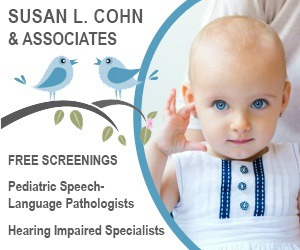What is a feeding therapist?
I am so excited to be joining the Susan L. Cohn and Associates team as their new speech/feeding therapist and certified lactation counselor! I feel so welcomed already and have enjoyed getting settled back into PNW living after being in California and Texas for nearly 8 years. One of my biggest passions in the field of speech-language pathology is Dysphagia (or feeding/swallowing disorder). I love helping families navigate mealtimes from breastfeeding to “picky eating” and everything in between. But what is “feeding therapy” and why do we, SLPs, provide it?
This question arises often when explaining the scope of practice of a Speech-Language Pathologist. Of course, the word “feeding” does not appear in the SLP title. However, SLPs are the primary providers of feeding and swallowing treatment for adults and children! As mentioned above, the medical term for a swallowing/feeding disorder is “dysphagia”. Speech-Language Pathologists are highly trained in the anatomy and physiology of chewing and swallowing from infancy through adulthood. Many SLPs choose this as a specialty for their practice!
There are several steps to successfully eat! Children must learn how to bring food into their mouths using their hands or utensils, open their mouths to chew without the food falling out and of course they must swallow their food safely, and in a timely manner without aspirating or choking. Drinking is also a tricky process involving the coordination of several different bodily systems that result in safe swallowing. Dysphagia can present itself as early as infancy when babies are having difficulty bottle or breastfeeding.
There can be many reasons or diagnoses why infants and children don’t learn these processes correctly and this is where a skilled SLP can help your family!
These reasons MIGHT include but are NOT limited to:
- Premature birth
- Sensory processing disorder
- Autism
- Tongue-tie
- Lip-tie
- Low tone
- Craniofacial anomalies (cleft palate, etc)
- Lack of exposure
Below are common symptoms that might indicate a feeding or swallowing disorder:
Infants:
- Arches back or stiffens body when feeding
- Cries or fusses when feeding
- Falls asleep when feeding
- Has difficulty breastfeeding
- Has difficulty breathing while feeding
Toddlers and children:
- Refuses to eat or drink
- Eats only certain textures or colors, such as only soft food, crunchy food, or beige food
- Eats limited brands of food that must be the same each time
- Takes a long time to eat (over 30 minutes)
- Has problems chewing (might spit out food or pocket it in cheeks)
- Coughs or gags during meals or when drinking
- Drools a lot or has liquid come out her mouth or nose during meals
- Gets stuffy during meals
- Has a gurgly, hoarse, or breathy voice during or after meals
- Spits up or throws up a lot
- Is not gaining weight or growing
(ASHA.org)
At Susan L. Cohn and Associates, we provide several different therapies for feeding and swallowing impairments! We know how stressful mealtimes can be when your child is not eating safely and/or is not gaining weight.
Do you think your infant or child might have a feeding or swallowing impairment? Call our office anytime to speak with a skilled speech therapist about your concerns and we can set up a comprehensive feeding evaluation.
SUSAN L. COHN & ASSOCIATES
710 NW Juniper Street Suite 108
Issaquah WA 98027
425-392-4965 or click here to request more information
WEBSITE | FACEBOOK | 425-392-4965 or click here to request more information



